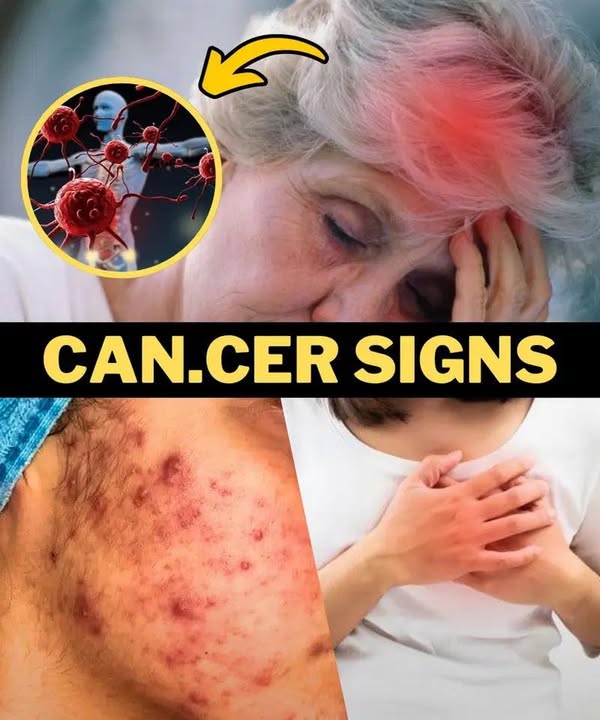
14 Visible Cancer Signs Every Woman Should Know
Cancer often develops quietly, and its symptoms can be easily missed. Early detection is key for effective treatment, but many warning signs are mistaken for minor health issues. Here are 14 visible cancer signs that every woman should be aware of.
- Unexplained Weight Loss
Losing 10 pounds or more without changing your diet or exercise might be a sign of cancers like pancreatic, stomach, or lung cancer. If you notice this, see a doctor. - Persistent Fatigue
Feeling constantly tired even after rest could be linked to leukemia, colon cancer, or stomach cancer. If the fatigue doesn’t go away, get medical advice. - Breast Changes
Any lump, swelling, nipple discharge (especially bloody), or changes in breast size, shape, or skin texture could mean breast cancer. Regular self – checks and mammograms are important for early detection. - Abnormal Bleeding
Unusual vaginal bleeding, either between periods or after menopause, can be a sign of uterine or cervical cancer. If you have unexpected bleeding, see a gynecologist right away. - Skin Irregularities
Moles that change in size, color, or shape, and sores that don’t heal could be warning signs of skin cancer. Keep an eye on any new or strange growths. - Persistent Cough or Hoarseness
A cough that lasts over three weeks, especially with blood, may indicate lung cancer. Persistent hoarseness could also be related to throat or thyroid cancer. - Difficulty Swallowing or Indigestion
Frequent indigestion, heartburn, or trouble swallowing might signal cancers of the esophagus, throat, or stomach. If these problems keep happening, get checked by a doctor. - Chronic Bloating
Ongoing bloating, especially with pain, weight loss, or bowel changes, could suggest ovarian cancer. Don’t ignore persistent bloating as a normal digestive issue. - Changes in Bowel Movements
Long – term diarrhea, constipation, or narrow stools could be an early sign of colorectal cancer. Blood in the stool is another serious sign that needs urgent medical evaluation. - Persistent Pelvic or Abdominal Pain
Continuous pelvic discomfort may be related to ovarian or endometrial cancer. If the pain lingers without a clear reason, consult a doctor. - Frequent Fevers or Infections
Repeated fevers or infections with no obvious cause may point to leukemia, a type of blood cancer. If you’re often sick without an explanation, get tested. - Ongoing Unexplained Pain
Pain that lasts for weeks, especially in the back, bones, or joints, could be associated with bone cancer or cancer that has spread. - Sores That Won’t Heal
Wounds or sores that don’t heal, especially in the mouth, on the skin, or in the genital area, may indicate oral, skin, or cervical cancer. Any persistent sore should be examined by a doctor. - Urinary Changes
Frequent urination, pain while urinating, or blood in the urine can be symptoms of bladder, kidney, or cervical cancer. If these issues continue, seek medical advice.
Final Thoughts
These symptoms don’t always mean cancer, but they should never be ignored. Early detection greatly increases the chances of successful treatment. If you have persistent or unexplained symptoms, see a healthcare provider without delay.



